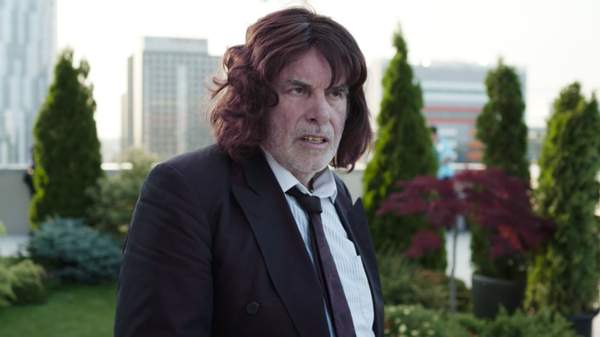Overview
Standing in a bar, being forced to make small talk with a stranger: we've all been there. Hearing from your parents more frequently than you have time for, despite your best intentions: many of us have experienced that as well. In Toni Erdmann, both scenarios combine in a way that might well give you nightmares. Just imagine if the person accosting you while you try to enjoy a drink turned out to be your dad in a bad wig and false teeth.
At its simplest, that's the idea behind writer-director Maren Ade's 162-minute comedy, which has been garnering acclaim since it premiered at the 2016 Cannes Film Festival, and remains the favourite to win his year's Oscar for best foreign-language film. A German consultant living in Bucharest, Ines (Sandra Hüller) is irritated when her practical joke-loving, divorced and lonely father Winfried (Peter Simonischek) arrives for an unexpected visit. But that soon gives way to unbridled horror when his alter ego Toni starts following her around.
Once is odd, twice is annoying, and three times… well, that's something else. Then again, one of the basic elements of life is repetition, which Toni Erdmann demonstrates disarmingly well. First, you'll cringe. Then you'll laugh. Before long, you may find yourself crying. Those are the stages audiences cycle through while watching Ade's film, and it's no accident. The mastery evident in ensuring that every detail of the movie imitates life can't be underestimated. The naturalistic camerawork and astute commentary on the importance of humour is not unlike Toni's ridiculous headpiece: it's just what's visible on the surface.
With all the buzz around the film in the lead up to the Oscars, it's hardly surprising to learn that we'll soon be getting an American remake (starring Jack Nicholson and Kristen Wiig). Why the world needs an English-language version is a question Hollywood is happily ignoring, but its high-profile cast certainly have huge shoes (and wigs, and false teeth) to fill. As Toni keeps ramping up his antics and Ines keeps struggling to contain her reactions, Hüller and Simonischek prove the film's most important pieces, ensuring their characters are not just likeable, but thoroughly believable as well.
